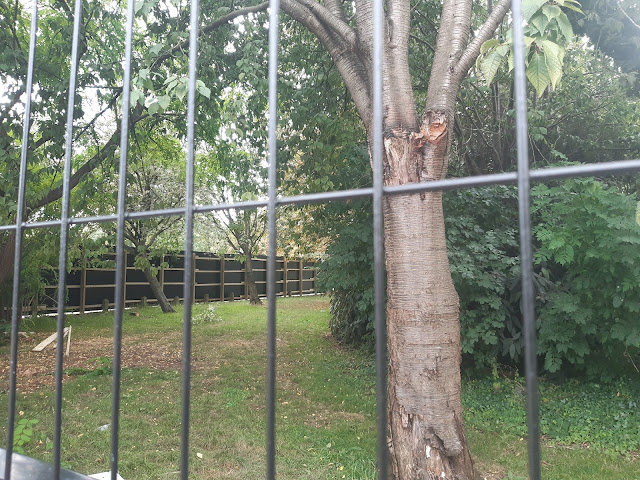Guest post by Philip Grant in a
personal capacity
Last month, Martin wrote that there was more to the Watling Gardens new homes than
the Council was letting on, in its press
statement claiming that it was providing 125 new homes for local families. This
followed on from a guest post I had written about the rushed and incorrect report on Watling
Gardens which was going to the Cabinet
Meeting on 20 June.
Brent wanted to reduce the number of London Affordable Rent homes at the
last minute, and replace 24 of those with Shared Ownership instead. In order to
go ahead with awarding a construction contract on that basis, they needed to
change the “Affordable Housing” condition in the planning consent they’d
received for the project in April this year.
Opening section of application letter from Jones Lang LaSalle on 14 July
2022.
Variations to planning consents are covered by two sections of the Town
& Country Planning Act 1990. Section 73 is for “material” amendments, while
Section 96A covers “non-material” amendments. An application on behalf of Brent
Council (as developer) was submitted to Brent Council (as Local Planning
Authority) on 14 July, on the basis that what was being sought was a
non-material amendment.
Unlike Section 73, applications under Section 96A do not have to be put
out for consultation, and are usually dealt with by Planning Officers under
“delegated authority” within 28 days. However, they do appear on the Council’s
planning website, so I read the supporting documents for the new application, 22/2519.
Planning agents are paid good money to present their client’s case in
the best light, but I felt that the “spin” in JLL’s letter might be considered
misleading on a couple of points. One of these was the claim that ‘there will
be no change to the amount of affordable housing being provided’. I have been
keen for some time to remind Council Officers and Cabinet members (and now
agents acting on their behalf) of the truth about different types of
“affordable housing”.
The rest of this “guest post” is the “neutral” comment on application
22/2519 which I submitted online on 25 July (although I have added some
relevant illustrations to break up the text):-
‘This application seeks to amend condition 3 of Brent Council’s
application 21/2473 (“the main application”), which was approved as recently as
three months ago.
1) In the Affordable Housing Statement, prepared by Jones Lang LaSalle (“JLL”)
and submitted as part of the supporting documents for the main application,
this was the paragraph on viability:
A paragraph from the Affordable Housing Statement on application
21/2473.
‘Viability
A separate Viability Assessment Report has been prepared by Savills
under separate cover and demonstrates that Brent Council are providing in
excess of the maximum viable amount of affordable housing. Notwithstanding
this, Brent Council are fully committed to delivering these much-needed new
affordable homes.’
In this application, 22/2519, JLL’s covering letter says:
‘Brent Council seeks to alter the wording of Condition 3 of planning
permission ref:21/2473 to vary the tenure mix of the affordable homes at the
Watling Gardens Estate in order to improve the overall financial viability of the
scheme.’
The earlier statement acknowledged that the amount of affordable housing
proposed in the main application was more than would be financially viable, but
said that, despite this, Brent Council were fully committed to delivering the
affordable homes set out in that application.
Now, the applicant is seeking to go back on that commitment.
But JLL, on behalf of Brent Council, have not submitted any updated
viability data to justify the proposed amendment. Shouldn’t such additional
information be a requirement?
An elevation drawing showing two views of Block B at Watling Gardens,
from application 21/2473.
2) At the end of the section of JLL’s covering letter which sets out
their proposed new wording for Condition 3, the agent states:
‘The proposed amendment does not materially impact permission 21/2473
and will enable a financially viable scheme to be delivered.’
I believe that there WOULD be a material impact in substituting 24
shared ownership homes instead of what were to be 24 homes for London
Affordable Rent.
Extract from JLL’s covering letter of 14 July, with details of the
proposed shared ownership flats.
Although shared ownership is technically an affordable housing tenure,
it is not an affordable home for the vast majority of Brent residents in
housing need.
The 2020 Brent Poverty Commission Report found that the only really
affordable Council housing in the borough was homes at Social Rent level.
London Affordable Rent levels were just about affordable for some families, if
they could top up their incomes with Housing Benefit or Universal Credit.
Shared ownership homes SHOULD NOT be treated as “affordable homes” for
the purpose of affordable housing in Brent.
To take away 24 London Affordable Rent homes from the mix in Condition 3
would effectively reduce the number of General Needs Housing homes available to
residents on the housing waiting list, or in temporary accommodation, by more
than 35% (from 67 down to 43).’
Philip Grant.



















